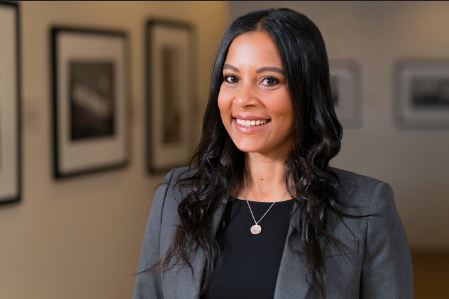By Andy Serbe, Daily Journal Staff Writer, Wednesday, August 9, 2017 – Los Angeles – A state appellate court reversed two probate court decisions that disqualified Miller Barondess LLP from handling a case concerning a dispute over the line of succession for a $300 million trust established by the founder of Herbalife Inc. and barred their client from her position as a trustee.
According to the 2nd District Court of Appeal opinions, both issued on Monday, former trustees Conrad Lee Klein and Jack Reynolds were removed from their positions for wrongdoing. They filed a motion to disqualify Miller Barondess because two of the firm’s former associates worked on trust matters during their tenure with other firms, and that partner Louis R. “Skip” Miller negotiated a fee payment from the trust to his former firm, Christensen Miller Fink Jacobs.
Klein and Reynolds argued that Miller Barondess was privy to privileged information through the attorneys, and could not represent a client challenging the trust over succession. Samantha Faulkner v. Conrad Lee Klein et al., B265893.
Los Angeles County Superior Court Judge Lesley C. Green granted the disqualification motion. Miller Barondess, led by Miller and Mira Hashmall petitioned the appellate court for a reversal in 2015.
The appellate court granted the appeal on Monday for lack of standing because the attorneys worked for the trust, not the trustees as individuals, thus never establishing personal attorney-client privilege.
“Only a former client is even in a position to seek disqualification. This was not an appropriate basis to seek it,” said Hashmall, who argued the appeal for Miller Barondess.
“When a trustee seeks advice on trust administration, the client is the office of the trustees, not the individual trustee,” said the unanimous unpublished opinion written by Justice Martin J. Tangeman. The panel also included Justice Steven Z. Perren and acting Presiding Justice Kenneth R. Yegan.
The trust is controlled by Alexander Hughes, son of Herbalife founder Mark Hughes, who died in 2000.
Miller Barondess represents Samantha Faulkner, who challenged the appointment of Fiduciary Trust International as trustee, claiming she was next in line after Klein and Reynolds were removed per terms outlined in the trust. According to the appellate court opinions, the trust names her and co-trustee Dale Sefarian as successors should Klein and Reynolds be “unable or unwilling to serve.”
According to a second opinion the same day, Alexander Hughes argued that he could appoint a non-successor trustee since the original ones were removed judicially rather than being “unable or unwilling to serve,” thus not invoking the line of succession outlined in the trust.
He also reasoned that they were not “unable to serve” because the trust defines the term as a physical or mental inability elsewhere. Green granted a motion agreeing, which was also reversed by the same appellate panel.
In the opinion, Tangeman wrote that Klein and Reynolds were “unable to serve as trustees because a court has ordered them not to do so” and said the trust “unambiguously provides” that Faulkner and Sefarian shall serve as co-trustees.
In his original petition to remove them as trustees, Hughes alleged that Klein and Reynolds mismanaged the trust, negligently handled funds, breached fiduciary trust, acted with hostility toward him and over-compensated themselves.
Hashmall said that Hughes’ passing over of Faulkner, and the fact he filed a joinder to the disqualification motion, was disappointing.
“In earlier proceedings, he testified she would be a good successor trustee that his father would have wanted. Before all this happened, he never spoke of any ill will, he was complimentary. We were disappointed and surprised when they ended up joining the disqualification,” she said.
Hashmall also said that Miller Barondess took numerous steps to ensure the former associates were sealed off from the case and blocked from any communication. She added that Miller was never involved with the trust itself, and only dealt with former trustees on fee disputes for which they had outside counsel.
The issue of screening attorneys to prevent firm disqualification from old matters when they change firms, however, remains murky. The opinions cite case law stating both that ethical screening of attorneys can rebut disqualification of a firm, and that it does not.
“Whether and how ethical screening may protect against vicarious disqualification is the subject of an unresolved split in authority,” the opinion said.
“Screens are one of those things that are really being addressed by judges, and they’re really case-specific. Judges are realizing ethical screens are necessary, because you can’t have these barriers to movement,” Hashmall said.
The appellate court’s finding that Klein and Reynolds had no standing for disqualification due to a lack of attorney-client privilege rendered the question moot in this case, but Hashmall said clarification is important.
“The first and foremost concern for the profession is client loyalty, but we can’t construct rules that look at that in a vacuum without context and the effect it has on the legal community,” she said.
Klein and Reynolds were represented by Rex S. Heinke of Akin Gump Strauss Hauer & Feld LLP, and Hughes was represented by Scott D. Bertzyk of Greenberg Traurig, LLP. None responded to phone and email requests for comment.

